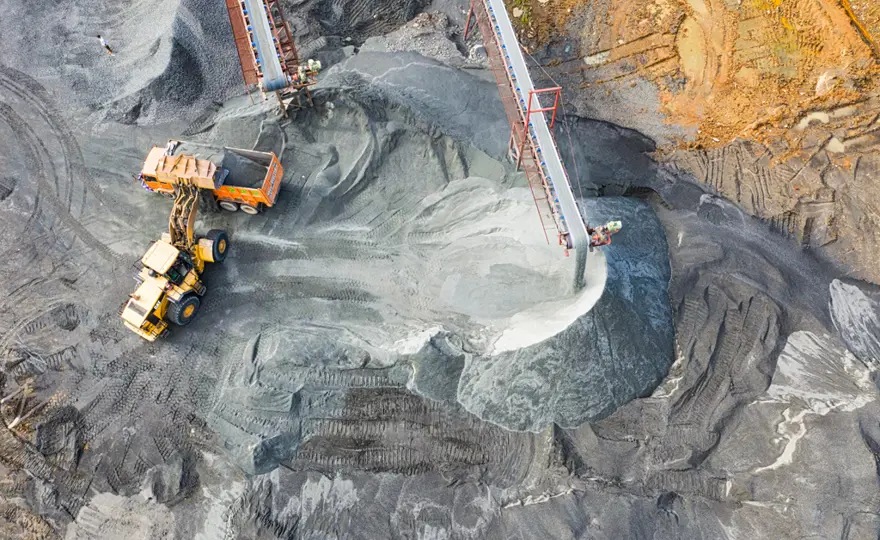ClientEarth Communications
13th August 2019


For six decades, lignite – the dirtiest and once the cheapest form of coal – has been the driving force of Greece’s economy. The Public Power Corporation (PPC), Greece’s dominant energy company, has been at the heart of this sector. Its once low electricity production costs and the jobs it created were deemed to outweigh the devastating effects lignite exploitation has on people’s health and the environment.
Today, lignite has become inefficient and costly. Despite this, the government has historically kept Greece artificially dependent on this fossil fuel by bypassing the law and putting industry needs before economic sense and the health of people and the planet.
Find out how we're fighting coal in Europe
For years, PPC has had exclusive rights to Greece’s lignite mines and power plants. But this distorted Greece’s energy market. To open up competition, the European Commission challenged PPC’s exclusive lignite rights and decided that the company had to divest 40% of its lignite assets.
Lignite divestment no longer makes financial sense. Investors know this, that's why they're refusing to buy PPC's loss-making assets.
The decision to divest these assets in 2009 aimed to create cheaper electricity prices, but changes in global climate policy and a progressive shift to renewable energy mean the lignite divestment no longer makes financial sense. The deadline to submit bids has already been repeatedly extended – due to a lack of investors willing to buy PPC’s assets that are now running at a loss.
But Greek and European authorities have continued to force this anti-competitive deal. If they persevere, their approach will lock lignite into Greece’s energy mix until at least 2030.
In an attempt to guarantee lignite’s future in Greece’s energy mix, the government is trying to introduce costly new subsidies that would give money to its aging coal plants, favouring them over Greece’s abundant cleaner energy sources.
Greece’s preferential treatment of its lignite industry over cheaper, cleaner and more sustainable energy sources has come at the cost people’s health and the climate. So we are taking legal steps to challenge continued support for lignite in Greece. We have written to the European Commission setting out how the cost of the subsidies will fall on Greek consumers. We also demonstrated that there is no need for the scheme when Greece is deliberately delaying changes to its energy market that would ensure a functional system for the future.
Read our view on Greece's proposed scheme
Greek authorities have made it impossible for the public to challenge many of PPC’s unlawful permits. Permits are licenses that set terms and conditions for the construction and running of power plants, which limit pollution of the surrounding environment. The public should normally be consulted before a permit is granted, renewed or extended. However, in Greece, many of these permits are being approved in a way that bypasses the public and judicial control. This could be allowing PPC to pollute above legal limits and endanger the protection of the environment and public health. We have taken legal action with national partners to prevent the Greek state denying the public their right to properly scrutinise the permitting process, so that PPC’s permits cannot just be waved through.
"Greece’s preferential treatment of its lignite industry over cheaper, cleaner and more sustainable energy sources has come at the cost people’s health and the climate. So we are taking legal steps to challenge its continued support for lignite."
— ClientEarth (@ClientEarth) August 14, 2019
Greek authorities have also been willing to disregard environmental laws to benefit PPC’s interests. In many cases, PPC’s permits partially or totally fail to meet various legal requirements and often do not abide by stricter emission limits. We have already taken action against the illegal renewal or extension of permits granted to Megalopoli A and B, Meliti I and its future sister plant Meliti II as well as Agios Dimirtios – ranked among the top 30 most polluting plants in Europe and responsible for releasing carcinogenic chemicals into the drinking water of nearby villages of Akrini, Agios Dimitrios, Koilada and Ryaki. Greece’s most recent breach of the law is illegally extending the lifetime of two of its most polluting lignite plants, Amyntaio and Kardia.
Amyntaio is Greece’s biggest emitter of sulphur dioxide (SO2) – a harmful gas with known negative impacts on people’s health. It emits 8.4 times the legal limit for SO2 for large power plants.
In 2017, the lignite mine feeding Amyntaio collapsed, endangering the lives of the people living in the adjacent village, Anargyroi, and forcing many to evacuate. Two years later, the villagers have yet to be formally relocated or compensated for the damages.
Despite the plant’s significant negative impacts, the government extended Amyntaio’s operating hours despite having exhausted them at the end of 2018. We partnered with The Green Tank to annul the permit extension as it goes against EU environmental law and was granted despite repeated objections from the European Commission.
The European Commission has since reinforced our legal arguments against Amyntaio’s permit extension in a letter sent to the Greek authorities. The Commission is concerned that Greece is failing to protect its people from harmful air pollution by allowing Amyntaio and Kardia to exceed their operating hours.
By breaching environmental laws, Greece is not protecting its citizens from the harmful effects of burning fossil fuels. It is intentionally delaying its transition to a cleaner, cheaper and more efficient low-carbon energy future. In doing so, it is failing to plan for a sustainable future – one that puts the health of people and the environment at the forefront of its priorities.
To achieve the Paris climate objectives and tackle the climate crisis we currently face, Greece needs to embrace a green future and phase out coal, not fund it.